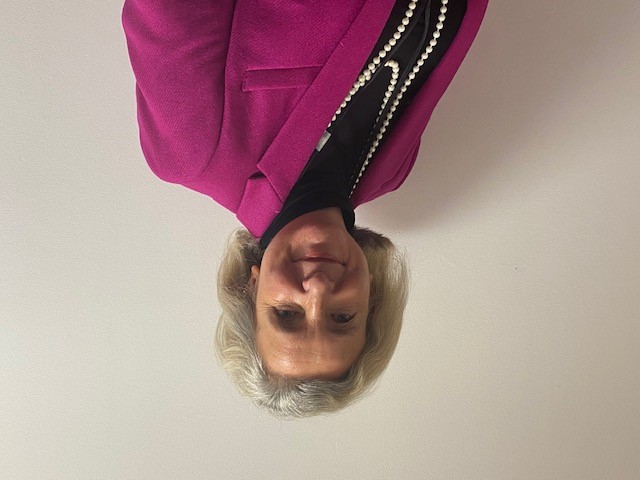One third of social care providers forced to shut services as they face a perfect storm of workforce challenges and financial pressure
Social care staff should be paid a fair wage
Social care providers are facing a perfect storm of workforce challenges and rising cost pressures of service delivery as they are forced to turn down admissions to services and, in severe cases, shut services altogether.
This is according to independent research commissioned by learning disability charity, Hft, which found that three quarters of learning disability care providers turned down new admissions to services in 2021 while more than a third had to close their services permanently due in part to an average staff vacancy rate of nearly 16%.
While nearly all providers believe that increases in staff wages could help recruitment and retention challenges, Hft’s latest Sector Pulse Check report found that 80% of those surveyed say the fees they receive from local authorities to deliver care will not be enough to cover their wage bills, forcing them to dig deep into their own reserves to pay their staff a fair rate.
“Social care staff should be paid a fair wage, one which is commensurate with the responsibilities of the job and that will help reduce high turnover and vacancy rates in the sector,” says Kirsty Matthews, CEO of Hft.
“Despite the introduction of a higher National Living Wage earlier in April, record inflation means that, in real terms, most front-line staff will not see a pay uplift and workforce challenges will persist as employees cope with the cost of living increase” she adds.
Concerningly, one in 10 providers will need to cover 20% of their wage bill from their own reserves, rather than through fees paid by local authorities to deliver the right standard of care to those they support, according to the research. On average, each provider surveyed will need to find £640,000 to cover the cost of wages, stretching the already finite resources of providers further.
This is at a time when the sector is in an increasingly precarious financial position, with 71% of providers reporting they are either in deficit, with costs exceeding funding, or that their surplus has decreased. This has increased from 56% in 2020. Alongside workforce challenges, Hft’s research highlights that financial pressure is forcing providers into difficult decisions such as handing back contracts to local authorities and offering care to fewer people to remain sustainable.
The charity is now calling on the Government to urgently redirect additional funds from the Health and Social Care Levy into social care from year one to ensure there is sufficient funding to cover wages which reflect the real-term cost of living and attract more individuals to work in the sector.
“To ensure that care staff are paid a salary commensurate with the responsibility of the job, and to alleviate the recruitment and retention crisis in the sector, it is vital that additional funds are drawn down from the Levy this year,” says Matthews.
“Only when the learning disability sector is placed on a sustainable financial footing and workforce challenges are addressed will care providers, and the wider health system, thrive together rather than merely survive,” she concludes.
Says Jonas Keck, Economist at Cebr: “The last two years have posed an unprecedented challenge to the social care sector, which had already been struggling prior to the pandemic, as a result of poor funding. The increase in the National Living Wage in April will hit the sector especially hard, as a large number of social care staff are paid at the minimum rate. This will put further financial pressure on already distressed providers, as for the majority, the funding received by local authorities will not be enough to cover the additional costs stemming from higher wages.”
Dr Rhidian Hughes, Chief Executive of the Voluntary Organisations Disability Group (VODG), said: “This year’s Hft Sector Pulse Report clearly exposes the extent to which rising cost pressures and critical workforce challenges are impacting on social care providers and the essential care and support services they deliver for disabled people and their families. Consequently, voluntary sector services in particular are becoming unviable, and it is people who draw on social care, and the workforce supporting them, who will be hit the hardest.
“The provision of high-quality care and support services for people with life-long disabilities is the hallmark of an equitable society that supports and protects its citizens. This must be rooted in a robust and sustainable social care system that has embedded within in it, investment, and support for voluntary sector services.
“VODG supports Hft’s call on government to redirect additional funds from the Health and Social Care Levy into social care from year one. This would help alleviate some of the immediate pressures being harshly felt today and go one step towards enabling state-funded services to continue delivering essential services into the future. We strongly encourage government to act on the evidence presented today.”
Sector Pulse Check 2021 is Hft’s fifth annual Sector Pulse Check report, carried out by independent economics and business consultancy Cebr, and the first of its kind to focus primarily on learning disability providers. Based on survey analysis from social care providers, it provides an annual snapshot of the financial health and the challenges faced by the social care sector during 2021, and is an indication of how providers anticipate the next 12 months will progress.
Press release distributed by Pressat on behalf of Hft, on Tuesday 3 May, 2022. For more information subscribe and follow https://pressat.co.uk/
Social Care Learning Disabilities Autism Health And Social Care Levy Care Workers Business & Finance Charities & non-profits Coronavirus (COVID-19) Government Health
Published By

07500 224 654
Val.Proctor@hft.org.uk
https://www.hft.org.uk/
media.enquiries@hft.org.uk
victoria.hemmingway@hft.org.uk
Visit Newsroom
You just read:
One third of social care providers forced to shut services as they face a perfect storm of workforce challenges and financial pressure
News from this source:


